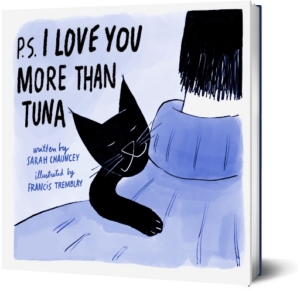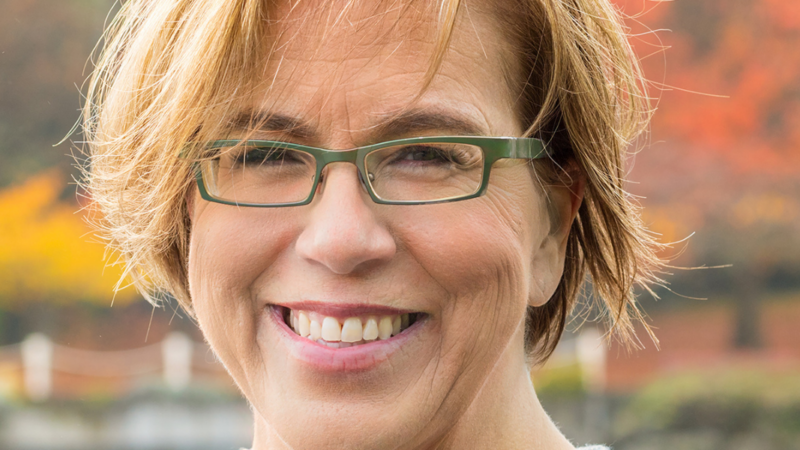The Author
Sarah Chauncey is the coauthor of P.S. I Love You More Than Tuna along with illustrator, Francis Tremblay, coming October, 2020. She has written and edited for nearly every medium over the past three decades, from print to television to digital. Her writing has been featured on EckhartTolle.com and Modern Loss, as well as in Lion’s Roar and Canadian Living. She lives on Vancouver Island in British Columbia, where she divides her time between writing, editing nonfiction, and walking in nature. Learn more at sarahchauncey.com.
The Book
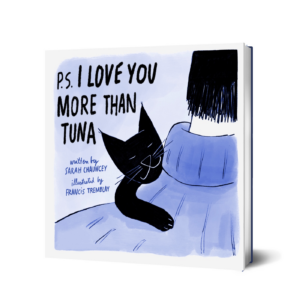
Our cats occupy a unique space in our hearts. When they’re gone, the loss can be devastating, the grief profound.
P.S. I Love You More Than Tuna gives us an opportunity to give friends, loved ones, or ourselves tangible comfort during the grieving period, when so many of us feel isolated and misunderstood after a beloved pet dies.
Send us a photo of your sacred space.
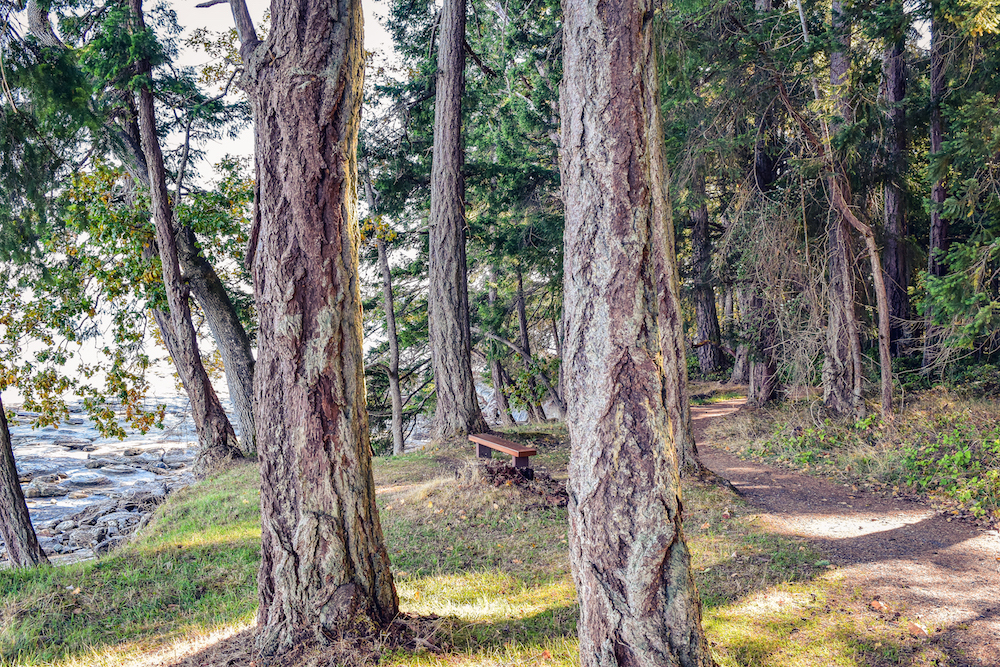
First Nation, Saysutshun Newcastle Island is an ancient forest and marine provincial park. Saysutshun, I’m told, means “training or preparation ground,” and indeed, for millennia before colonization, the Snuneymuxw brought healers to this small island to train “mentally, physically, and spiritually.” I knew none of this history when I first began walking long stretches of the uninhabited island’s 13.6 miles of trails. I only knew that the island seemed to lift away anything that wasn’t essential, easing my mind and making way for creative ideas to flow. I’d walk a bit, then sit and meditate, write for a while, then walk some more. This bench, under a circle of seven trees, became my favorite writing and meditation spot. The moss-covered trees became my friends, teaching me to stay rooted when things around me change. As I wrote in a 2016 essay about the island, “I have become a literal tree-hugger, and even—when nobody is looking—a tree-kisser.”
What was your favorite book as a child?
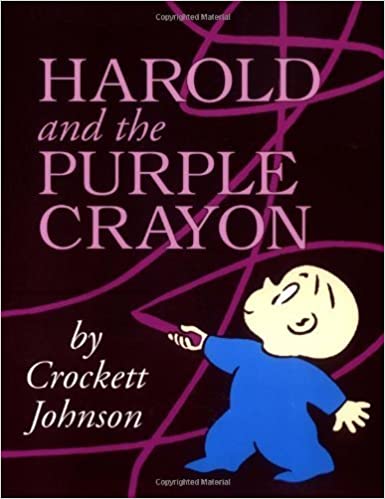
I was a total bookworm as a child. Instead of playing games at recess, I preferred to curl up under my desk and read. Of all the books I read—from every Encyclopedia Brown to Freaky Friday to The Short Stories of Ernest Hemingway (I was a precocious kid), the book with the most enduring impact was also the simplest: Harold and the Purple Crayon. I was enchanted by Harold’s adventures, amazed by his ability to draw his way out of every obstacle and ultimately find his way home. Long before I began seeing this as a metaphor for creativity (and life!), this story appealed to me. Fifty years later, I continue to find new layers of meaning in this little book. It’s a simple yet profound testament to the power of imagination and creativity.
What is one unexpected thing or habit that inspires your writing practice?
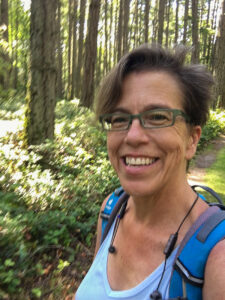
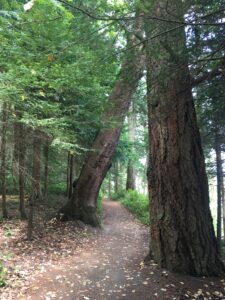
Walking in nature is my creative “secret sauce” and the central practice to my writing. Several years ago, I realized that although my role in this world is as a writer, my job is to bring myself back into presence, over and over, to get into a place where words can flow through me. I walk to get out of my mind and into my body. I come into fierce presence by noticing the rain on my face, salal berries ripening into deep blue, or the texture of earth beneath my feet. When my body is occupied by walking, ideas bubble up from my subconscious. Whether I’m looking for ways to trim an over-long essay or searching for words to evoke a hard-to-articulate experience, as soon as my legs find their rhythm, ideas begin to flow.
Learn More

Sounds True | Amazon | Barnes&Noble | Bookshop | Indiebound








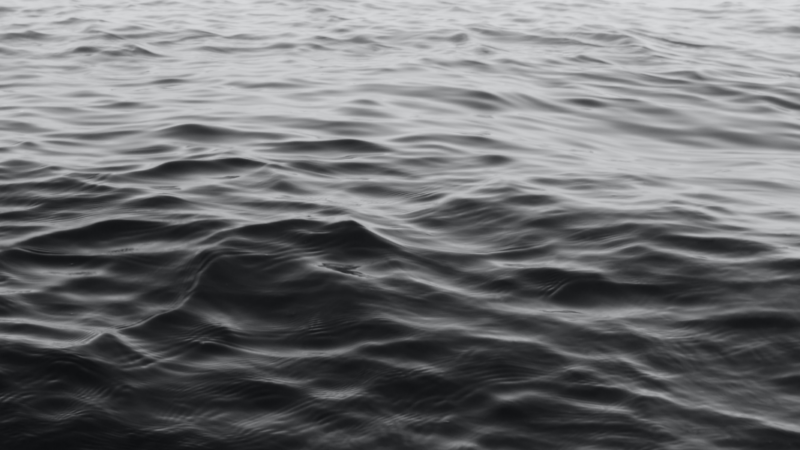
 Sarah Chauncey
Sarah Chauncey